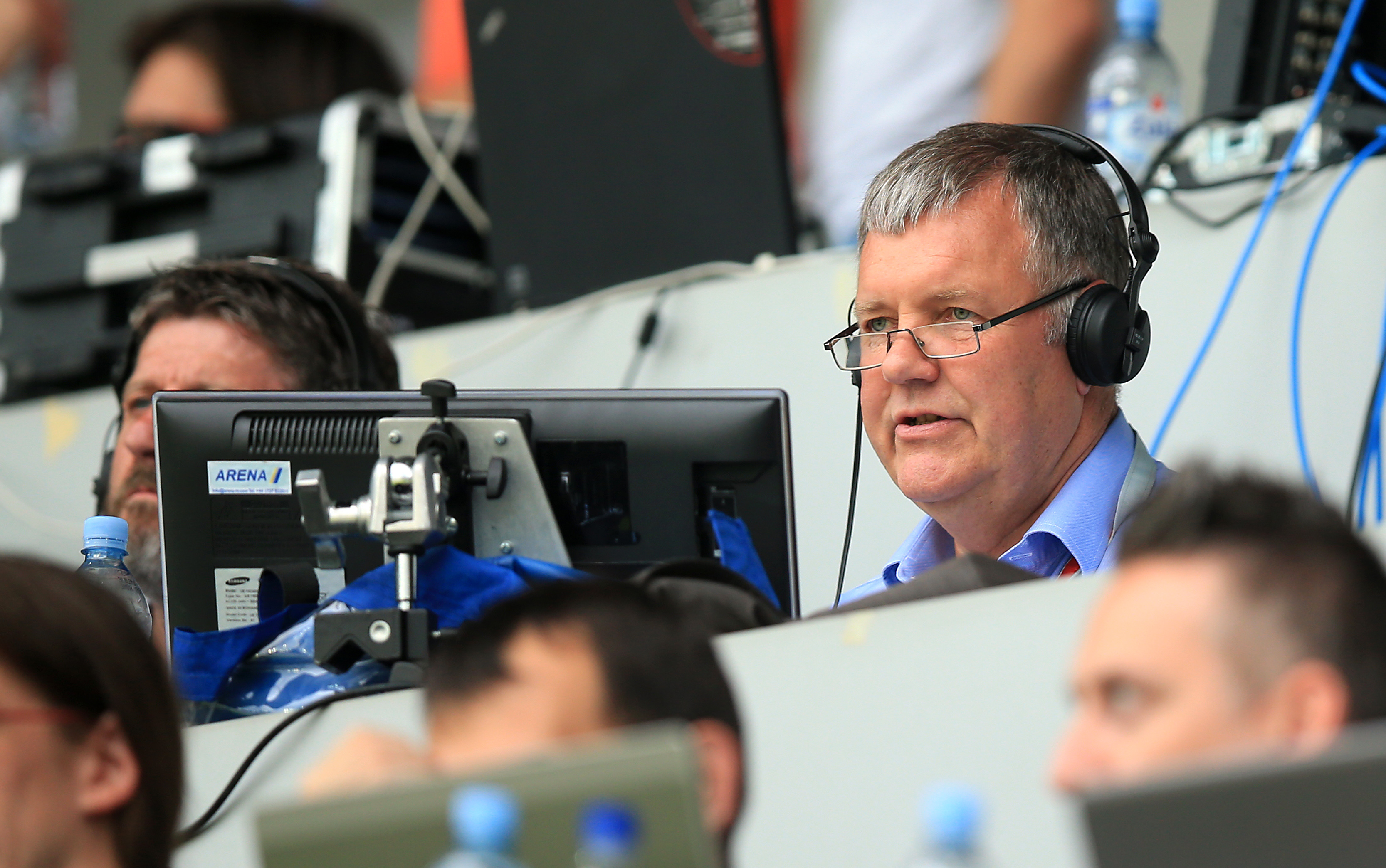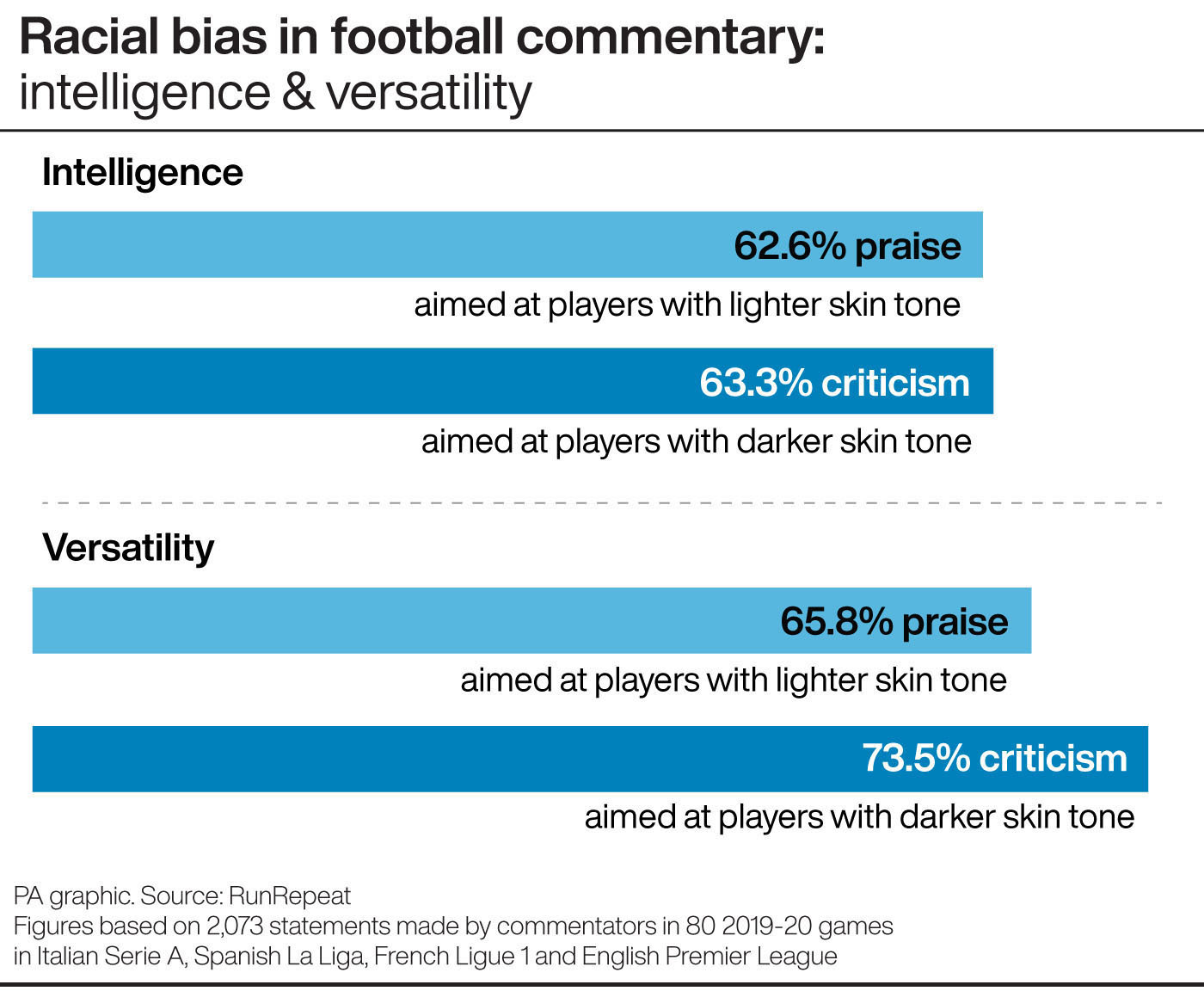Clive Tyldesley writes to PFA suggesting training for co-commentators

Clive Tyldesley has written to the Professional Footballers’ Association suggesting co-commentators are given proper training after a study found “evident bias” in how darker-skinned players are described in broadcasts.
The study, conducted by Danish firm RunRepeat in association with the PFA, found 62.6 per cent of praise regarding a player’s intelligence was aimed at those with lighter skin, while 63.33 per cent of criticism for a player’s intelligence was aimed at those with darker skin tones.
The findings also show that 60.4 per cent of praise for work rate was directed at lighter-skinned players.
The study looked at a total of 80 matches played in the Premier League, Italy’s Serie A, LaLiga in Spain and Ligue 1 in France this season. It analysed 2,073 statements made by broadcasters speaking in English working for media outlets in the United Kingdom, the United States and Canada.

As ITV’s main commentator, Tyldesley is one of England’s most recognisable game callers and he says that more training is needed to make those who take up the microphone more aware of what they are saying.
“I mentor media undergraduates. I discuss the business, the purpose of commentary with them – does anyone discuss that with the co-commentators who step straight off the field and pick up a mic?” he asked as he spoke on YouTube.
“Does anyone discuss with them the thought processes and the responsibilities that come with broadcasting?
Get FourFourTwo Newsletter
The best features, fun and footballing quizzes, straight to your inbox every week.
“I’ve written to the PFA today suggesting that we set up some proper training, because co-commentators, ex-players, their members, may well have contributed to the stereotyping in these findings. Most of the opinions and judgements you hear during commentaries come from the co-comms, they don’t come from me, the lead comm.”
Tyldesley, arguably most famous for his ‘Solskjaer has won it’ line as Manchester United claimed the 1999 Champions League, says he has been aware of the need to avoid stereotyping for some time and that preparation is not just about researching how many appearances a player has made.
“I’ve been made aware of the tendency that’s been described in this report at Kick it Out seminars for several years and anything that makes you think about how you commentate is good,” he added.
“I’ve always been mindful of this argument and being mindful is being prepared. You’ve seen how I prepare, but preparation isn’t all about neat writing, or facts and figures; it’s about thinking. Thinking what you’re going to say and how you’re going to say it, preferably before you say it. That is what this report is telling us commentators and co-commentators to do and I’m all for that.”
Tyldesley added that the report was the first time he has seen “in-depth analysis of any element of commentary” and made him realise how little feedback he gets beyond often-abusive Twitter mentions.
“Aside from all the cliches and the hype we’re accused of, we do try, or we should try, to use the language accurately and responsibly,” he said.
“Racial stereotypes are not just wrong, morally wrong, they are inaccurate and they are irresponsible. They are lazy, thoughtless, and in my blown-up opinion, far too much sports commentary is lazy and thoughtless.”
